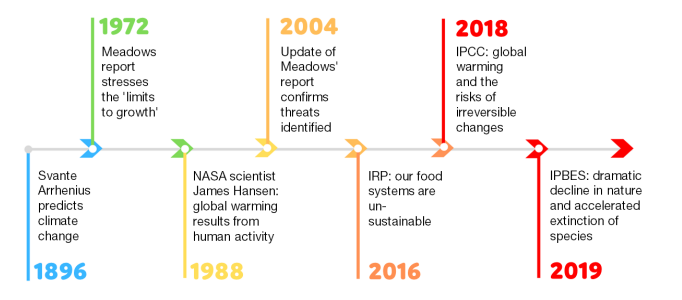28 November 2019 — Stories
by Olivier Boutellis-Taft

Company purpose is being hotly debated. It is time for stakeholders to move from discussing to acting. We should praise the 180 CEOs of the Business Roundtable who have pledged to overturn “three decades of orthodoxy” and work to benefit all stakeholders. We now need to make sure they walk the talk.
Environmental and social considerations are not just about doing good and making the planet a better place, they are about staying in business and still having a planet to live on. There is now indisputable scientific evidence that continuing a path of endless growth is suicide. It is time to get our priorities right: once the planet is exhausted, there will be no ground for business, investors or politicians.

The way the economy operates must fundamentally change to survive. Businesses need to make money in a different manner than ever-increasing sales and fuelling overconsumption. Revamping corporate governance is instrumental to move to a circular economy and responsible value creation.
Our publication, 10 ideas to make corporate governance a driver of a sustainable economy addresses the collective responsibility to make our economy sustainable. We identify ten ways that boards and policymakers/regulators can use corporate governance to make sustainability the cornerstone of their decision making.
Boards have the power to transform their business and can help leverage one the greatest drivers of change: markets. Policymakers and regulators must support and accelerate systemic transformation. We aim to challenge them and provoke thoughts with ten recommendations that:
Good business decisions start with reliable information. The accountancy profession has leveraged its expertise in the field of non-financial information and now has a long-standing experience on how to help companies make the right changes to reduce their environmental footprint – and costs. As businesses change their benchmarks for success, accountants contribute by: measuring impacts, disclosing information, and adding credibility.
There is no time to lose, private and public actors need to act swiftly and decisively to create a sustainable economy. Read more about how corporate governance can become a diver of a sustainable economy and let us know your thoughts and comments on the paper by email to [email protected] by end January 2020.